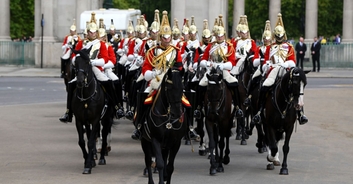This evening, MPs rejected the proposed Brexit deal as it currently stands, sending the Government back to the drawing board. The "Brexit meaningful vote" (which was originally scheduled for December 11th, 2018, but had to be rescheduled to this week after ongoing debate) would have allowed Prime Minister Theresa May to set the wheels in motion for her exit strategy had it been approved, but this rejection has cast fresh doubt on the fate of the nation.
The result is hardly a surprise, however, as more than 100 Conservative MPs had previously voiced opposition to the current deal before the meaningful vote.

Ahead of the final vote, May appealed to the House of Commons to back her up, saying: "It is not perfect, but when the history books are written, people will look at the decision of this House and ask, 'Did we deliver on the country's vote to leave the EU, did we safeguard our economy, security or union, or did we let the British people down?'"
Michael Gove, meanwhile, said that rejecting the deal would lead to a no-deal Brexit with short-term economic damage "or worse, no Brexit at all."
"If we don't vote for this agreement then we risk playing into the hands of those who do not want Brexit to go ahead," he said.

Despite some strong support from her most loyal ministers, though, May lost out to others that were expected to be key players in the decision. Of course, one of the major pitfalls for May was her lack of support from the DUP, who refused to comply with a vote in favour for the deal on account of the Northern Irish backstop.
"[The backstop] does violence to the union - it separates us from the rest of the United Kingdom in a very very obvious way," said Democratic Unionist leader, Arlene Foster.
As it currently stands, the next steps for the Prime Minister - and, indeed, Britain as a whole - are unclear. It has been predicted that May will step down from her position following the result, as this was ultimately the last test of her capabilities in manoeuvring the Brexit negotiations.

Speaking to his party yesterday, Jeremy Corbyn condemned the deal and said that he would be calling for a general election in the event that it was rejected. He also propositioned another vote of no-confidence "soon".
At the same time, many (both in and out of parliament) are calling for a second referendum, especially given that a significant number of people have changed their minds on the matter since the initial vote in 2016. Some of the most recent polls show that only a minority of people believe we will get a good deal out of Brexit, and so another people's vote is perhaps on the cards.
Brexit is scheduled to take place on March 29th this year, so a decision on how to proceed must be reached by then.










